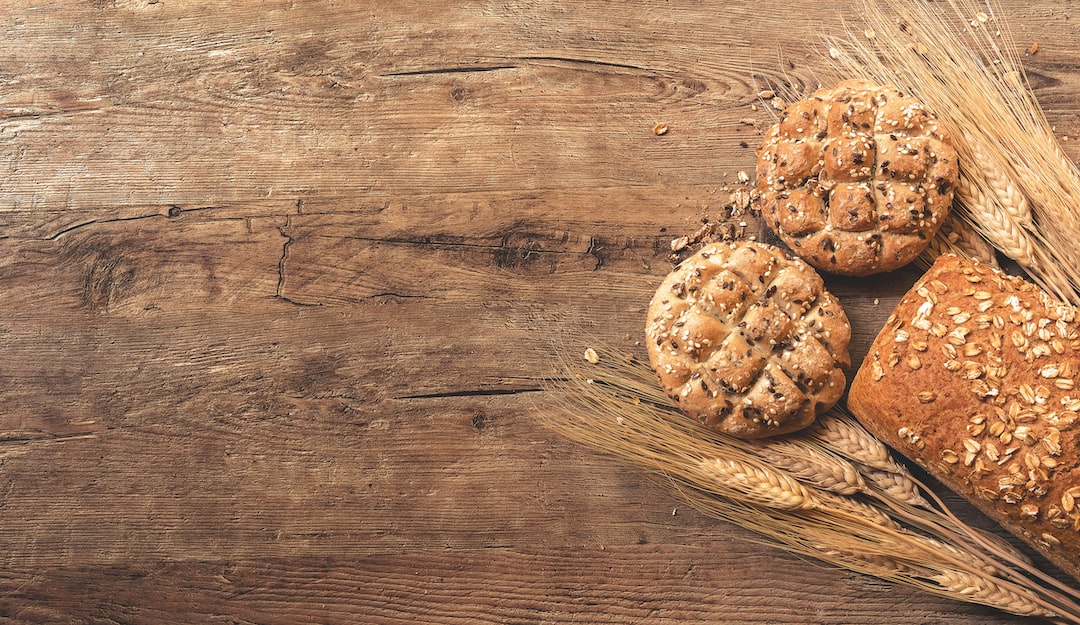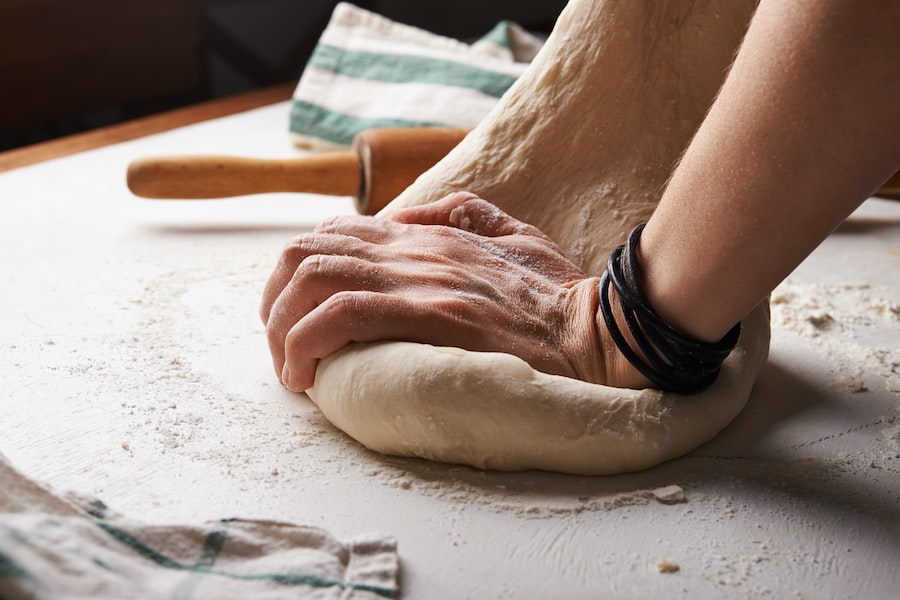Composting 101: Is Bread a Compostable Material?

Composting is the process of decomposing organic materials, such as food scraps and yard waste, into nutrient-rich soil. It is a natural and sustainable way to recycle organic waste and reduce the amount of waste that goes into landfills. Composting has numerous benefits, both for the environment and for gardeners.
One of the main benefits of composting is that it reduces the amount of waste that goes into landfills. Organic waste, such as food scraps and yard trimmings, make up a significant portion of municipal solid waste. By composting these materials instead of throwing them away, we can divert them from landfills and reduce greenhouse gas emissions.
Composting also helps to improve soil health and fertility. The nutrient-rich compost that is produced through the composting process can be used as a natural fertilizer for plants. It improves soil structure, increases water retention, and provides essential nutrients for plant growth. Compost also helps to suppress plant diseases and pests, reducing the need for chemical fertilizers and pesticides.
Key Takeaways
- Composting is a sustainable way to reduce waste and improve soil health.
- Composting involves breaking down organic materials into nutrient-rich soil.
- There are several types of composting methods, including aerobic and anaerobic.
- Many organic materials can be composted, but some, like meat and dairy, should be avoided.
- Bread can be a valuable addition to compost, but it should be added in moderation and properly managed to avoid issues like mold and pests.
What is Composting and How Does It Work?
Composting is a natural process that occurs when organic materials break down into simpler compounds under the right conditions. The process is carried out by microorganisms, such as bacteria and fungi, which decompose the organic matter and convert it into compost.
The composting process requires four main components: organic matter, moisture, oxygen, and microorganisms. The organic matter can include a variety of materials, such as food scraps, yard waste, leaves, and even paper products. These materials provide the carbon and nitrogen that the microorganisms need to carry out the decomposition process.
Moisture is important because it helps to create the right environment for the microorganisms to thrive. The compost pile should be kept moist but not too wet, as excessive moisture can lead to anaerobic conditions and unpleasant odors.
Oxygen is necessary for the aerobic microorganisms to carry out the decomposition process. Turning or aerating the compost pile regularly helps to ensure that there is enough oxygen for the microorganisms to do their work.
Types of Composting Methods
There are several different methods of composting, each with its own advantages and disadvantages. The most common methods include hot composting, vermicomposting, and cold composting.
Hot composting is a fast and efficient method of composting that requires a large amount of organic matter and regular turning of the compost pile. The high temperatures generated during hot composting help to kill weed seeds and pathogens, resulting in a more stable and nutrient-rich compost.
Vermicomposting, on the other hand, uses worms to break down organic matter. Red worms, also known as red wigglers, are commonly used for vermicomposting. They consume organic matter and excrete nutrient-rich castings, which can be used as a natural fertilizer.
Cold composting is a slower method of composting that does not require as much effort or maintenance as hot composting. It involves simply piling up organic materials and allowing them to decompose over time. While cold composting takes longer to produce usable compost, it requires less effort and can be a good option for those who have limited time or space.
Composting Materials: What Can and Can’t Be Composted
| Compostable Materials | Can Be Composted | Cannot Be Composted |
|---|---|---|
| Fruits and vegetables | Yes | No |
| Eggshells | Yes | No |
| Coffee grounds and filters | Yes | No |
| Tea bags | Yes | No |
| Grass clippings | Yes | No |
| Leaves | Yes | No |
| Wood chips and sawdust | Yes | No |
| Paper and cardboard | Yes | No |
| Meat, fish, and bones | No | Yes |
| Dairy products | No | Yes |
| Fats, oils, and grease | No | Yes |
| Plastic and synthetic materials | No | Yes |
When it comes to composting, not all materials are created equal. Some materials can be composted, while others should be avoided. It’s important to know what can and cannot be composted in order to maintain a healthy and productive compost pile.
Materials that can be composted include fruit and vegetable scraps, coffee grounds, tea bags, eggshells, yard waste (such as leaves and grass clippings), and shredded paper products (such as newspaper and cardboard). These materials provide the carbon and nitrogen that the microorganisms need to carry out the composting process.
On the other hand, there are certain materials that should not be composted. These include meat and dairy products, oily or greasy foods, pet waste, and diseased plants. These materials can attract pests, create unpleasant odors, and introduce pathogens into the compost pile.
It’s also important to balance the carbon and nitrogen in your compost pile. Carbon-rich materials, also known as browns, include dry leaves, straw, and shredded paper. Nitrogen-rich materials, also known as greens, include fruit and vegetable scraps, grass clippings, and coffee grounds. A good rule of thumb is to aim for a ratio of about 3 parts browns to 1 part greens in your compost pile.
The Role of Bread in Composting
Bread can be a valuable addition to your compost pile. It is rich in carbohydrates and provides a good source of energy for the microorganisms that carry out the composting process. Bread also contains small amounts of nitrogen, which helps to balance the carbon-to-nitrogen ratio in the compost pile.
When bread is added to a compost pile, it breaks down relatively quickly and helps to speed up the decomposition process. It can also help to create a more diverse and balanced mix of organic materials in the compost pile.
In addition to its nutritional value for the microorganisms in the compost pile, bread can also help to attract earthworms. Earthworms are beneficial for composting because they help to break down organic matter and improve soil structure.
How to Compost Bread Properly

Composting bread is relatively simple and can be done using any of the composting methods mentioned earlier. Here is a step-by-step guide on how to compost bread properly:
1. Tear or cut the bread into small pieces. This will help it break down more quickly in the compost pile.
2. Add the bread to your compost pile. If you are using a hot composting method, make sure to mix the bread in with the other organic materials. If you are using vermicomposting, bury the bread in the bedding material.
3. Keep the compost pile moist but not too wet. Bread contains moisture, so you may need to adjust the moisture level of your compost pile accordingly.
4. Turn or aerate the compost pile regularly to ensure that there is enough oxygen for the microorganisms to do their work.
Benefits of Composting Bread
Composting bread offers several benefits, both for the environment and for gardeners. From an environmental perspective, composting bread helps to reduce waste and divert it from landfills. This reduces greenhouse gas emissions and helps to conserve valuable landfill space.
Compost that is made with bread can also provide numerous benefits for gardeners. It improves soil structure and fertility, increases water retention, and provides essential nutrients for plant growth. Compost can also help to suppress plant diseases and pests, reducing the need for chemical fertilizers and pesticides.
Incorporating bread into your compost pile can also help to create a more diverse and balanced mix of organic materials. This can lead to a more productive and nutrient-rich compost that is beneficial for plants.
Common Mistakes to Avoid When Composting Bread
While composting bread is relatively straightforward, there are some common mistakes that people make. Here are a few tips to help you avoid these mistakes:
1. Avoid adding too much bread at once. Bread can break down quickly in the compost pile, but adding too much at once can create an imbalance in the carbon-to-nitrogen ratio.
2. Make sure to tear or cut the bread into small pieces before adding it to the compost pile. This will help it break down more quickly and evenly.
3. Avoid adding moldy or spoiled bread to the compost pile. Mold can spread and contaminate the compost, so it’s best to discard any moldy bread.
4. Keep an eye on the moisture level of your compost pile. Bread contains moisture, so you may need to adjust the moisture level accordingly to prevent the compost pile from becoming too wet.
Troubleshooting Common Composting Issues
While composting bread is generally a straightforward process, there are some common issues that may arise. Here are a few common issues and their solutions:
1. Foul odors: If your compost pile starts to smell bad, it may be too wet or not getting enough oxygen. Turn or aerate the compost pile more frequently and adjust the moisture level as needed.
2. Slow decomposition: If your compost pile is not breaking down as quickly as you would like, it may need more nitrogen-rich materials. Add more greens, such as fruit and vegetable scraps, to help speed up the decomposition process.
3. Pests: If your compost pile attracts pests, such as rats or flies, it may be because you are adding meat or dairy products. Avoid adding these materials to your compost pile and make sure to cover any exposed food scraps with a layer of browns.
Incorporating Bread into Your Composting Routine
Composting bread is a simple and effective way to reduce waste and create nutrient-rich soil for your garden. By understanding the composting process and following a few simple guidelines, you can successfully incorporate bread into your composting routine.
Not only does composting bread help to reduce waste and conserve landfill space, but it also provides numerous benefits for gardeners. The nutrient-rich compost that is produced through the composting process improves soil health and fertility, increases water retention, and provides essential nutrients for plant growth.
So why not give it a try? Start incorporating bread into your composting routine today and reap the benefits of this sustainable and natural way of recycling organic waste. Your garden will thank you!



